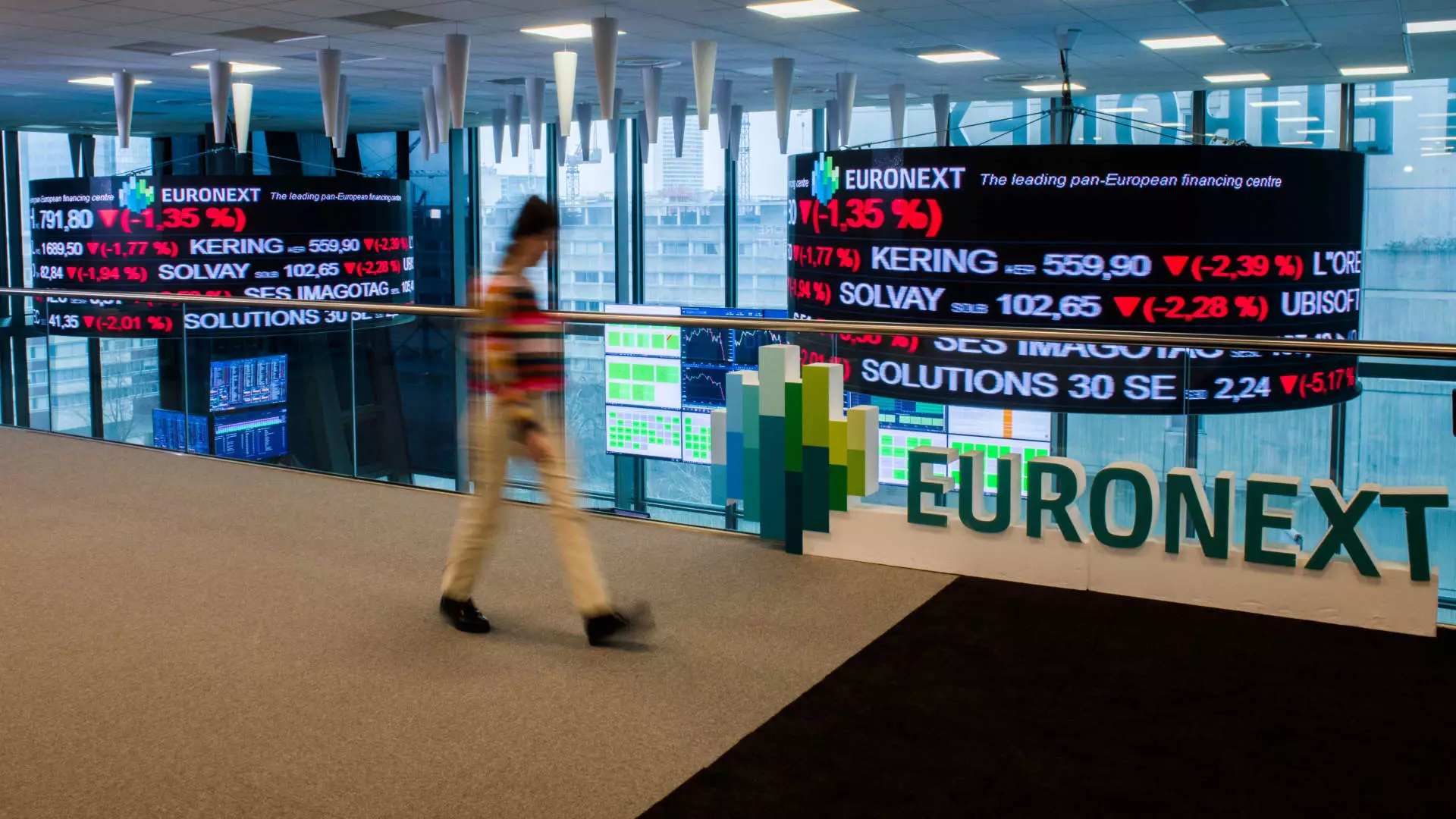The aftermath of Donald Trump’s victory in the recent election has generated significant fluctuations in global equities, particularly among U.S.-listed funds that track foreign stocks. While major U.S. indices surged to record heights, this optimism was not mirrored in international markets. Exchange-traded funds (ETFs) linked to markets in South Korea, Hong Kong, Taiwan, and Chile, for instance, experienced notable declines during Wednesday’s trading session. This stark contrast raises questions about the potential implications of Trump’s economic policies on global trade and investment landscapes.
Investor apprehension is largely rooted in the highly anticipated trade policies expected from the new administration. Specifically, Trump’s proposition of implementing tariffs of up to 20% on imports, with an aggressive 60% rate targeting China, has raised alarms among international investors. Despite NBC News polling indicating public disapproval of such tariffs, concerns about their potential effectiveness on trade relations and global economic stability cannot be overlooked. Yung-Yu Ma, the chief investment officer at BMO Wealth Management, succinctly encapsulates this sentiment, suggesting that uncertainty stemming from these proposed policies could stymie growth in international equity markets.
Analyzing Market Divergence and Regional Trends
The current market dynamics reveal a significant divergence between U.S. and international stock performances, a phenomenon likely driven by the immediate and perceived consequences of Trump’s victory. The Dow Jones Industrial Average experienced its most significant gains in nearly two years, while many European exchanges felt the weight of uncertainty, indicated by a more than 2% drop in the iShares Core MSCI Europe ETF (IEUR). Meanwhile, Asia-Pacific markets displayed mixed results; Japan’s Nikkei 225 showed resilience against the global trend, while the iShares MSCI China ETF (MCHI) declined by over 2%, reflecting underlying investor fears regarding U.S.-China trade relations.
Interestingly, not all international funds faced downturns. The Global X MSCI Argentina ETF (ARGT) surprised investors by rising more than 2% and reaching 52-week highs. This was notably in the context of Argentina’s recent election of Javier Milei, a libertarian leader often compared to Trump. This divergence in performance highlights how localized political shifts can interact with broader global trends, allowing certain markets to thrive amidst wider uncertainty.
The Rising Dollar and Its Impact on Investment Strategies
Furthermore, the performance of the U.S. dollar is another critical factor influencing international equities. Following Trump’s electoral victory, the ICE U.S. Dollar Index surged to its highest levels since July, reflecting increased inflation expectations. LPL Financial’s chief technical strategist, Adam Turnquist, noted that a stronger dollar could exacerbate the challenges facing emerging markets, which have struggled against their U.S. counterparts for several years. The iShares MSCI Emerging Markets ETF (EEM) suffered a decline of over 1% on Wednesday, underscoring the broader impact of U.S. political events on global economic conditions.
The reaction of international markets to the outcome of the U.S. election suggests a complex interplay between domestic policies and global economic health. Uncertainty surrounding trade policies and currency strength will likely continue to shape investment strategies as global markets recalibrate in response to the evolving political landscape. Investors would do well to remain vigilant as these developments unfold, anticipating further market adjustments in the wake of Trump’s administration.

